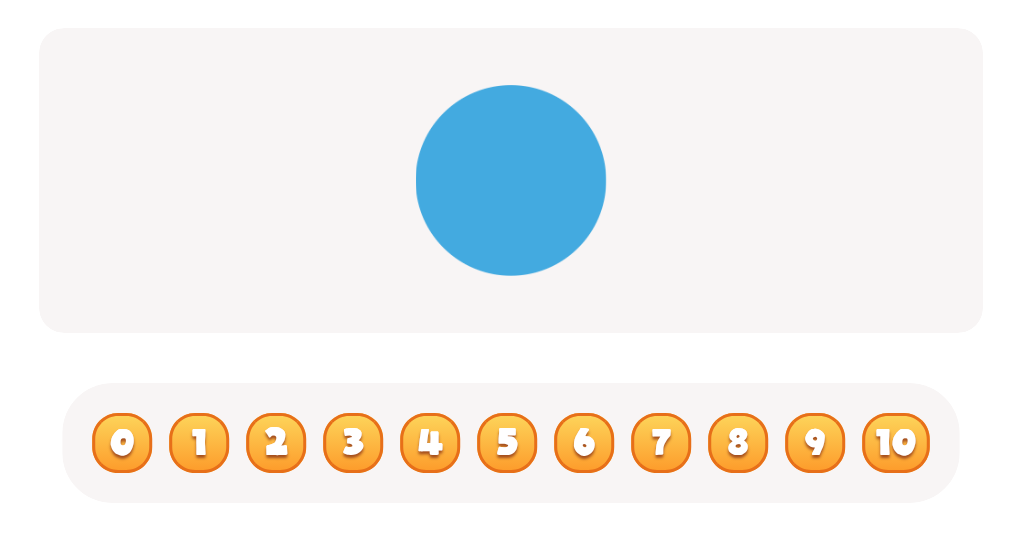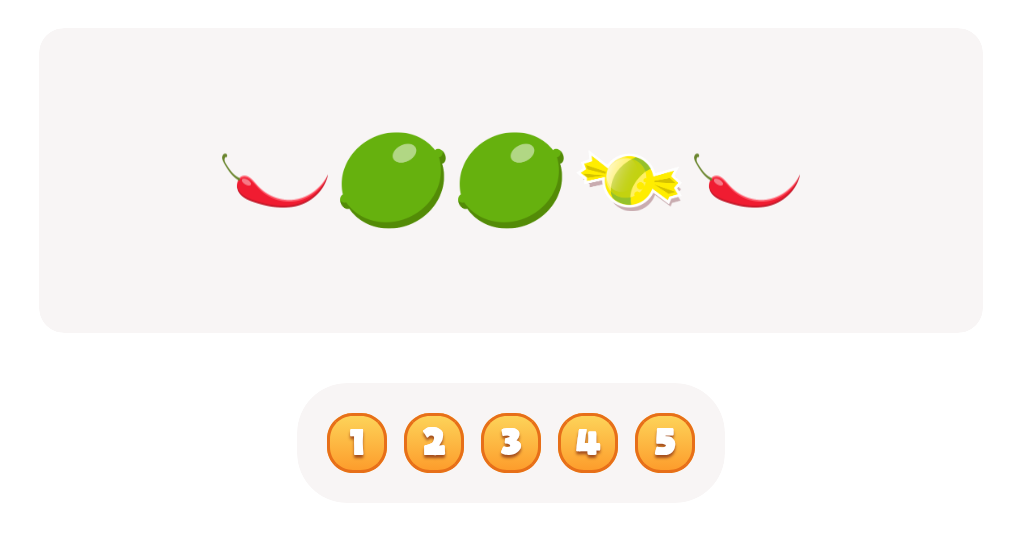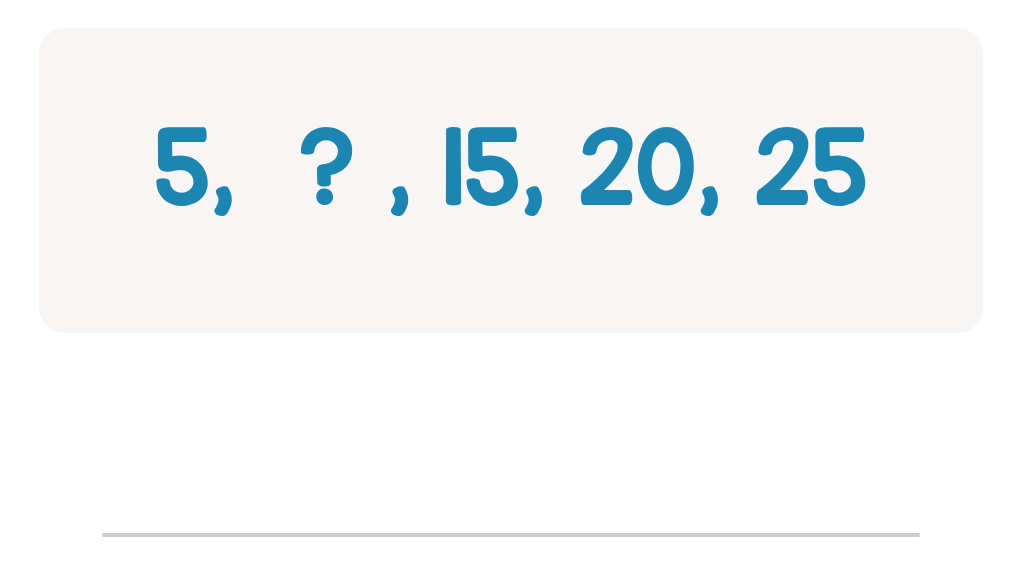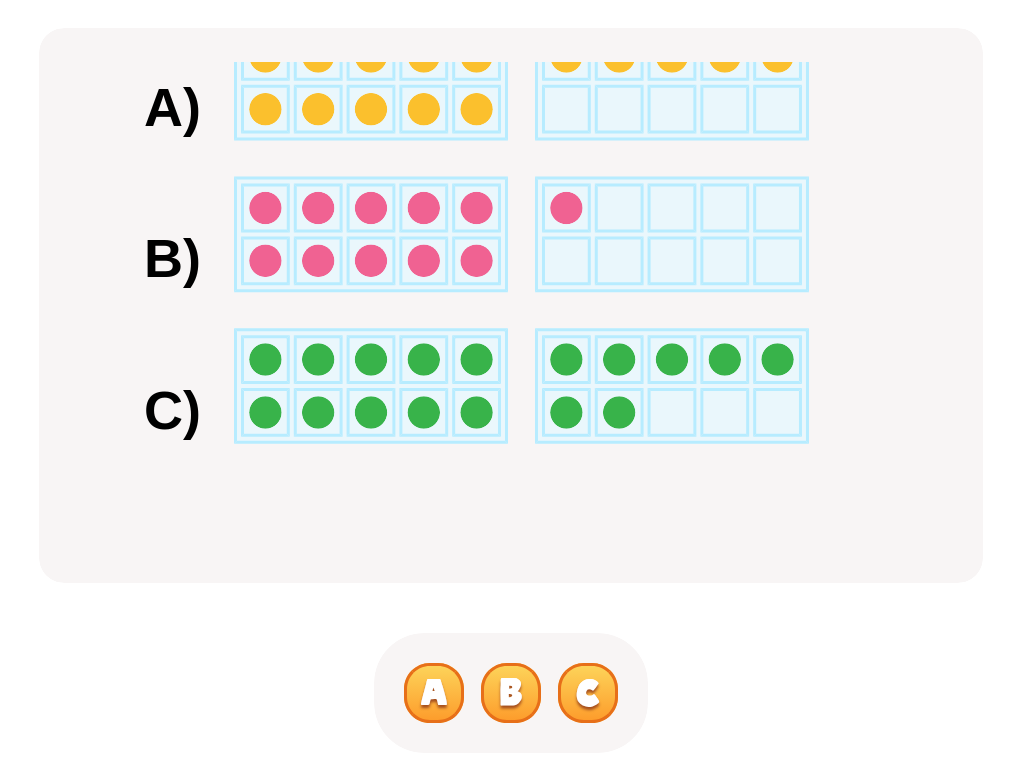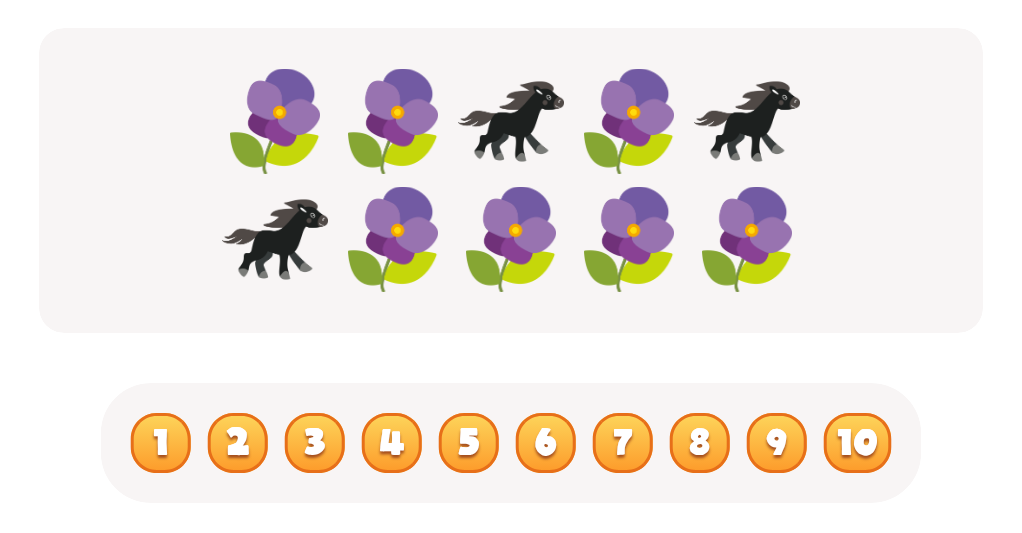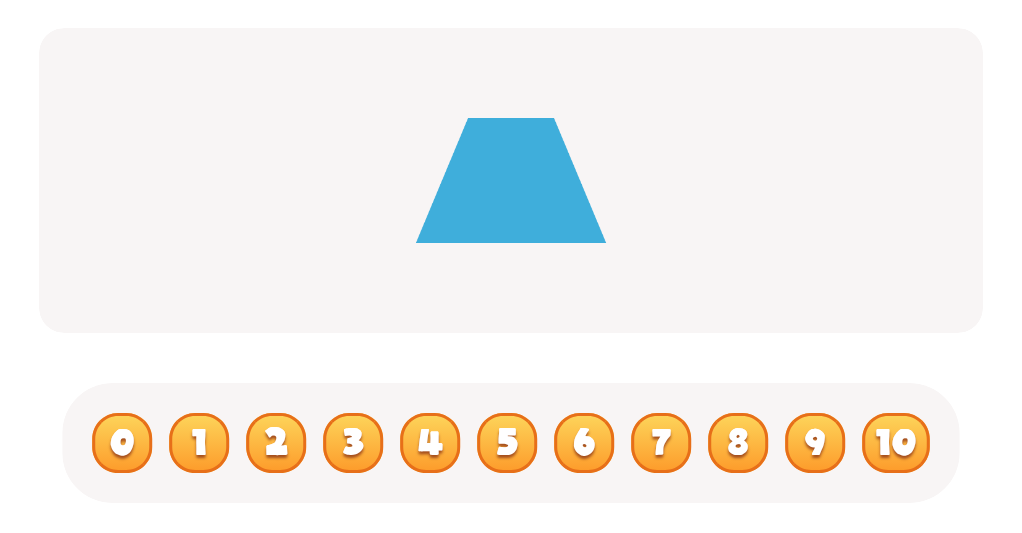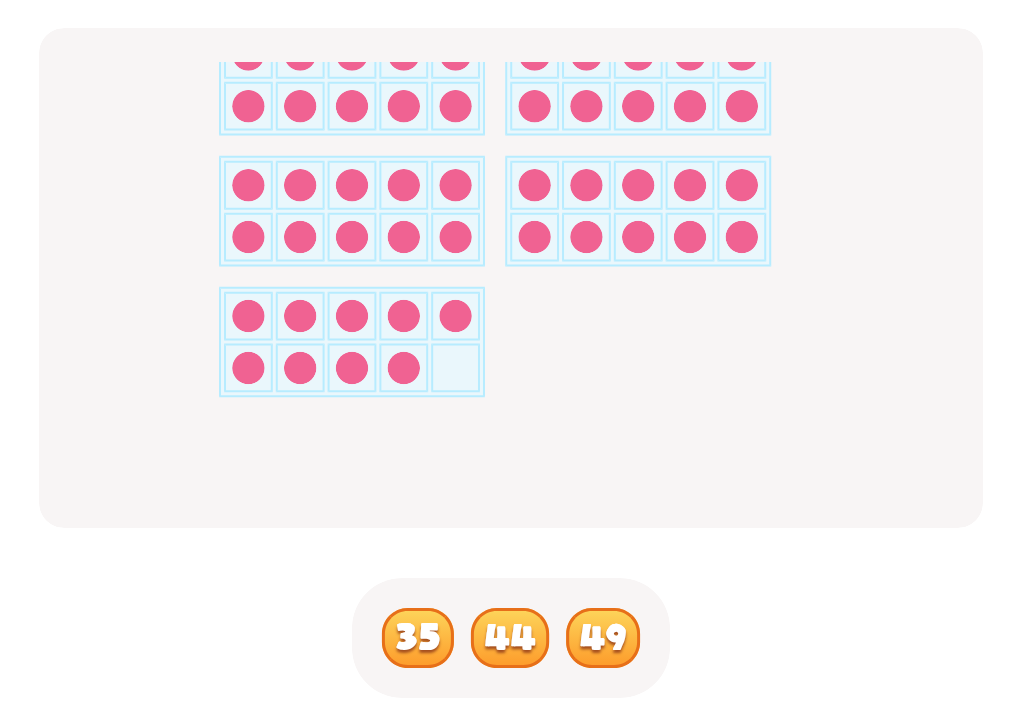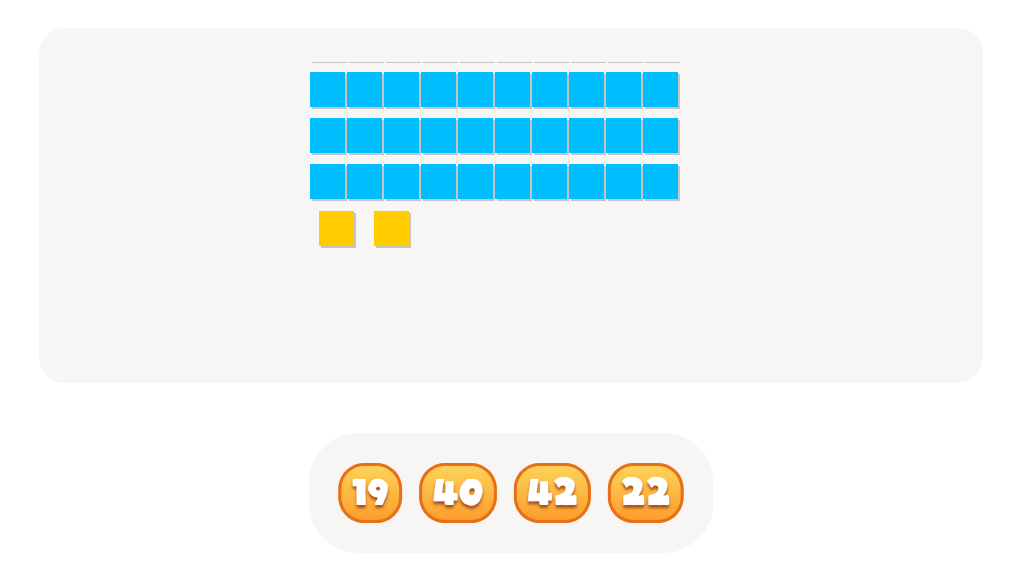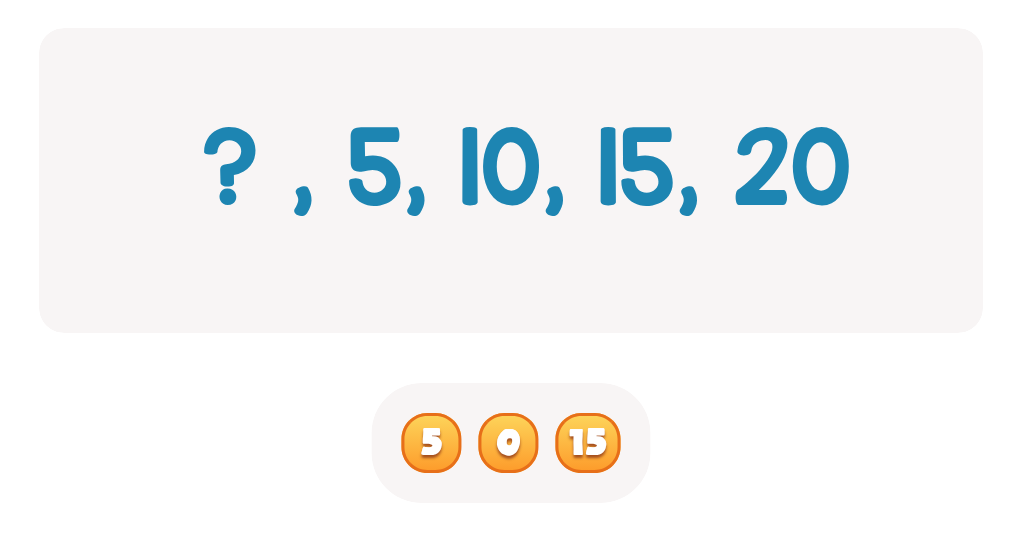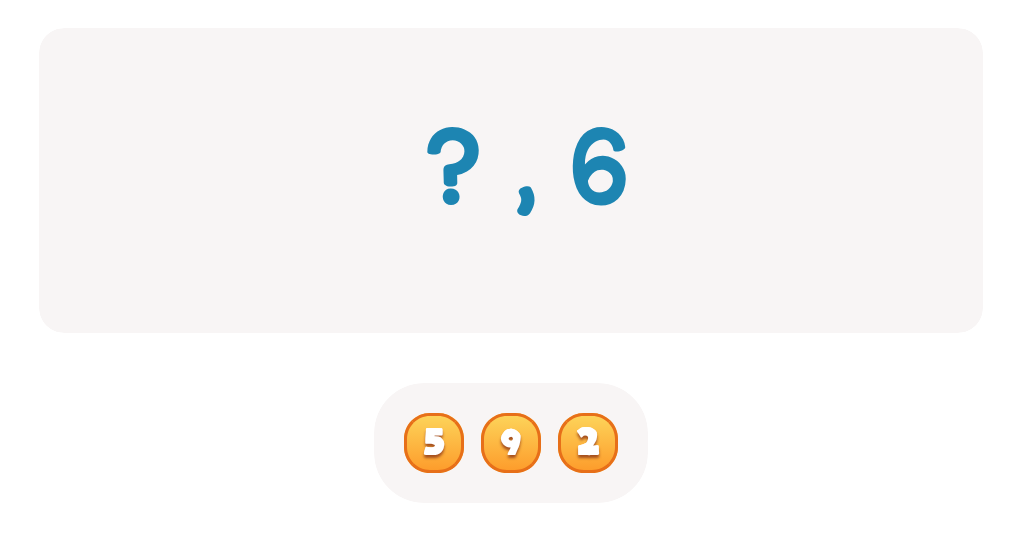Counting skills Normal Counting Worksheets for Ages 4-7
7 filtered results
-
From - To
Discover our engaging Counting Skills worksheets designed for ages 4-7. These fun and interactive worksheets help children master essential counting skills, from recognizing numbers to counting objects. Each activity is carefully crafted to boost confidence and reinforce learning through colorful illustrations and creative exercises. Our resources focus on developing key mathematical foundations, ensuring young learners gain proficiency in number sequencing and basic arithmetic. Perfect for home and classroom use, these worksheets are an excellent tool for parents and teachers to support early math education and foster a love for learning. Explore and download your worksheets today with Kids Academy.
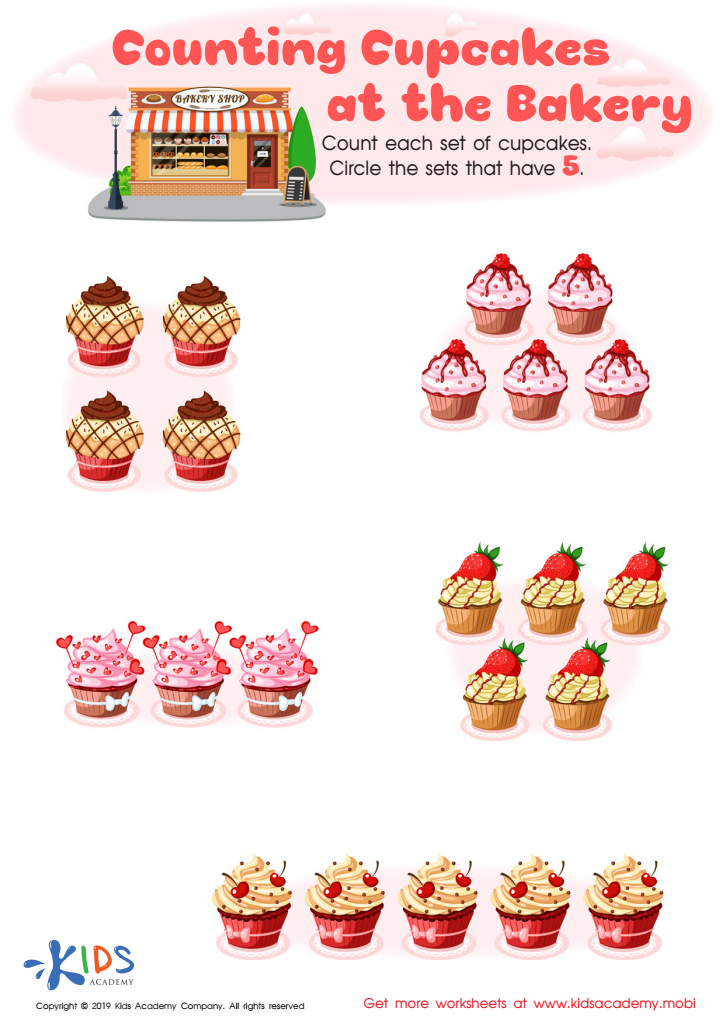

Counting Cupcakes Worksheet
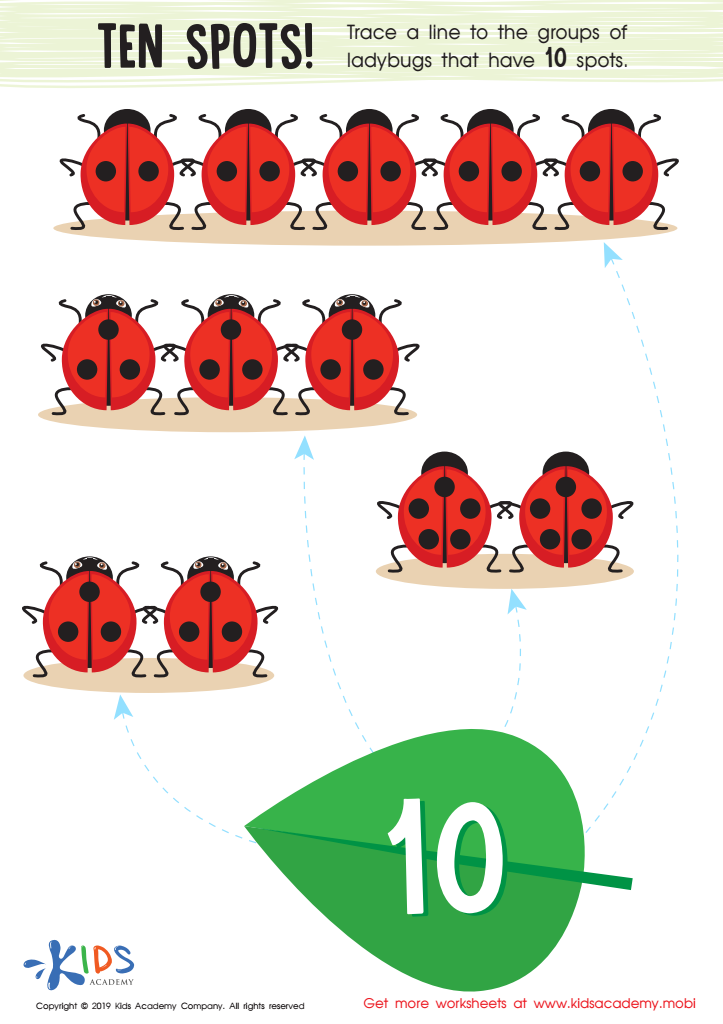

Ten Spots Worksheet
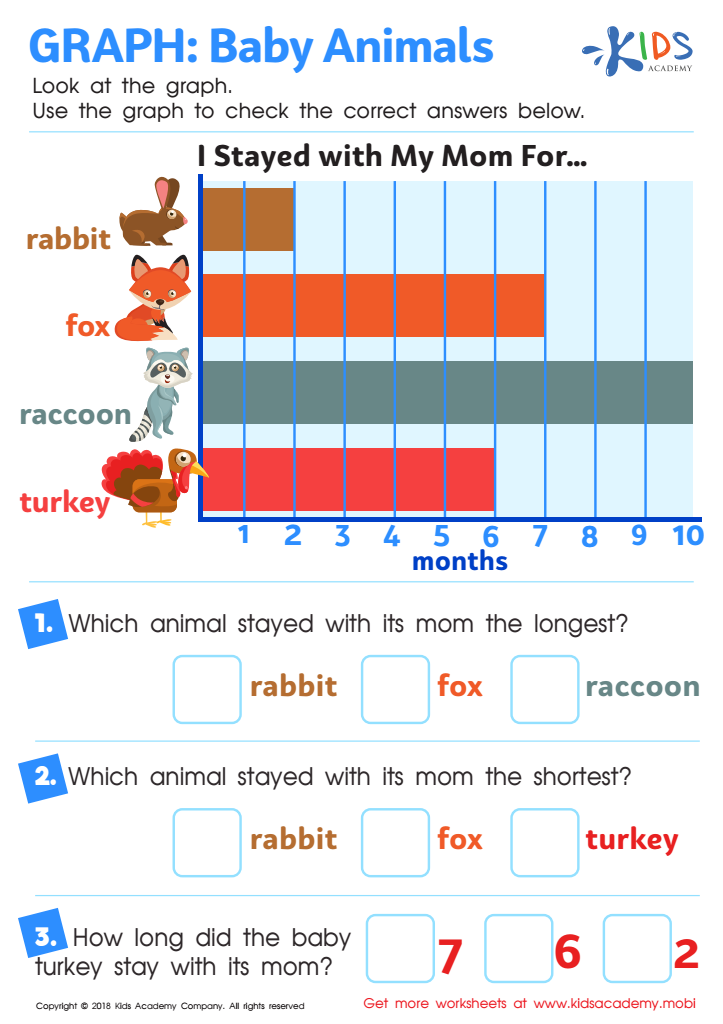

Graph: Baby Animals Worksheet
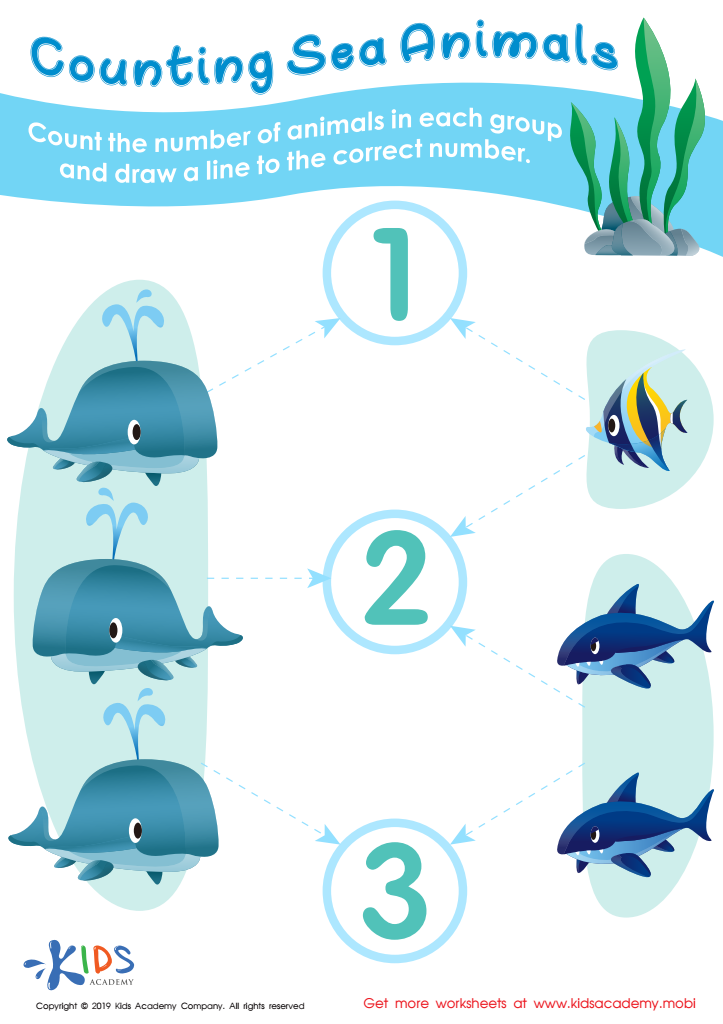

Counting Sea Animals Worksheet


Frog Countdown Worksheet
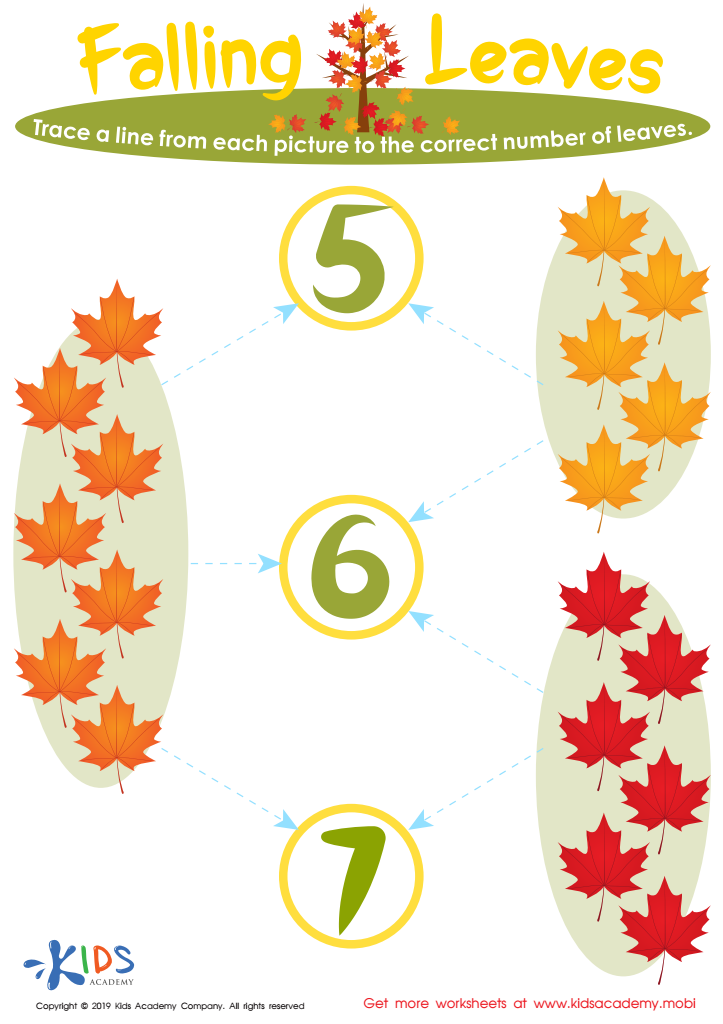

Falling Leaves Worksheet
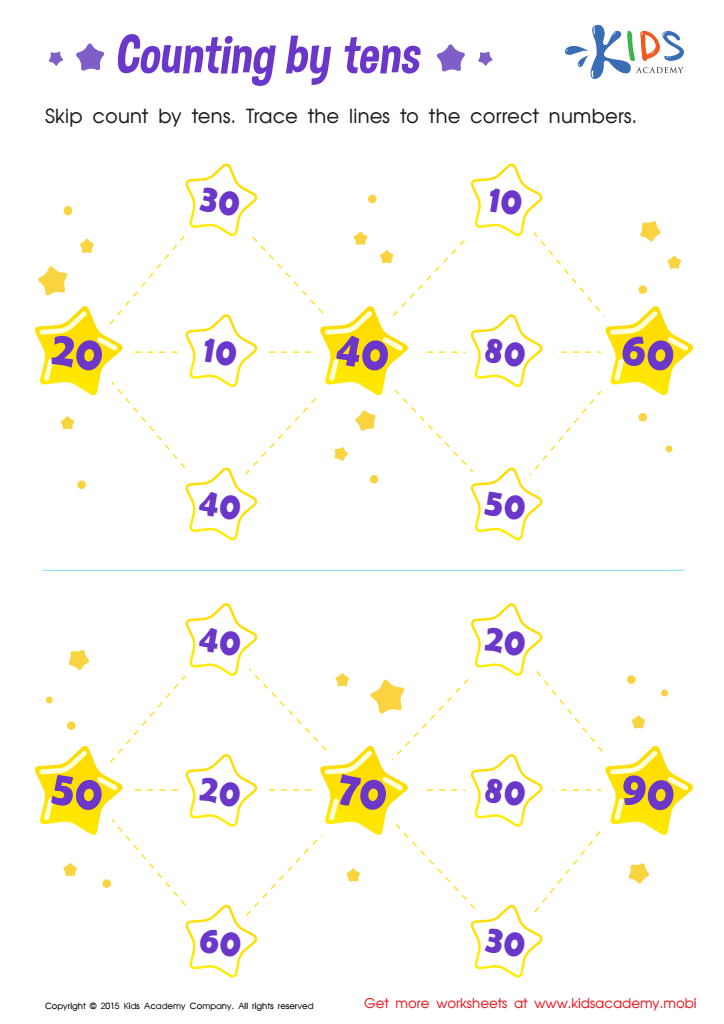

Learn Dozens: Counting by Tens Printable
Counting skills are foundational for young children's overall cognitive development and later academic success. For ages 4-7, mastering normal counting is crucial for several reasons. First, counting fosters numerical literacy, helping children understand basic concepts like quantity, order, and value. This foundational knowledge supports more advanced mathematical skills, such as addition, subtraction, and problem-solving.
Second, counting enhances cognitive abilities such as memory, focus, and logical thinking. Learning to count involves remembering sequences, recognizing patterns, and developing the ability to follow organized steps, all of which contribute to cognitive growth. These skills are not only vital in math but also in other academic subjects and real-life situations.
Third, proficiency in counting boosts children's confidence and enthusiasm for learning. Early success in numerical tasks can lead to a positive attitude toward school and education, setting the stage for lifelong learning.
Lastly, counting skills are essential for daily life. Activities ranging from shopping to cooking require an understanding of numbers and counting. By ensuring children are proficient in counting, parents and teachers equip them with essential skills for navigating both academic challenges and everyday tasks. Above all, nurturing a child's ability to count lays a strong, adaptable foundation for further educational and personal growth.
 Assign to My Students
Assign to My Students
